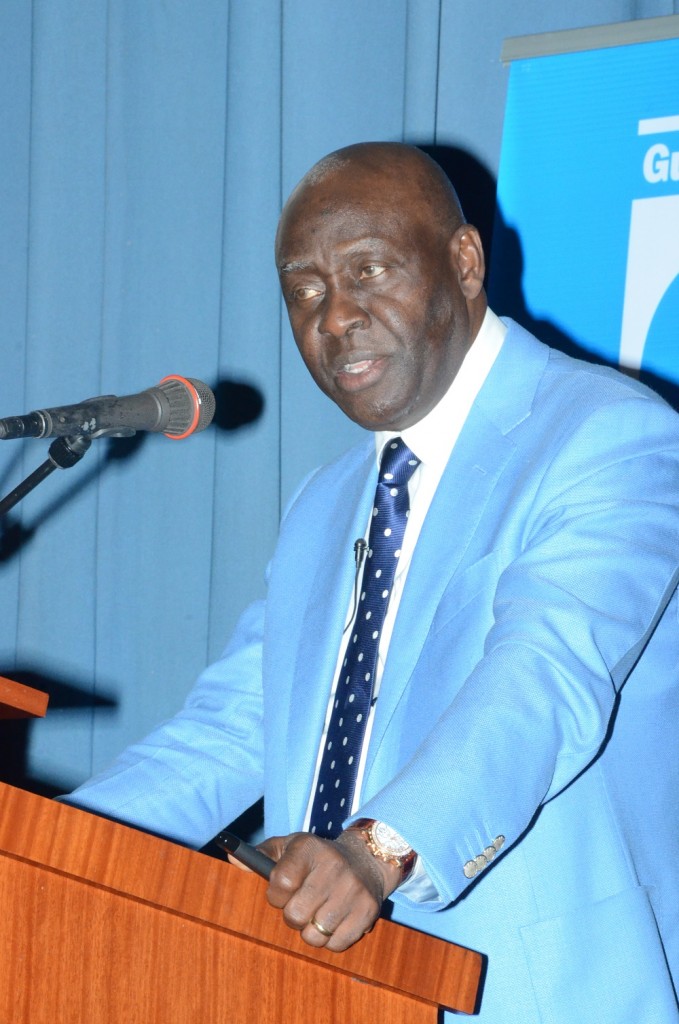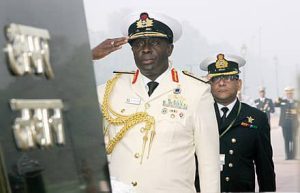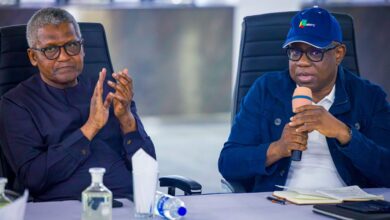Nigeria’s Expanded Continental Shelf Comes With Additional Security Responsibility – Ezeoba, former CNS
... Country Needs More Alliances for Greater Maritime Security Impact

A former Chief of Naval Staff, Vice Admiral Dele Joseph Ezeoba, Rtd, has stated that the expansion of Nigeria’s continental shelf from 200 to 350 nautical miles as approved by United Nations comes with additional security responsibilities
Ezeoba who said this while delivering a paper at the Maritime Academy of Nigeria Blue Economy Week in Oron, Akwa Ibom State also advocated for increased utilisation of the nation’s expertise in areas of shipbuilding and other critical services to save cost and further develop local maritime capacity.

According to him, the additional space which comes with economic advantage has placed the task for increased responsibility for the old and additional space.
The retired naval chief while identifying maritime insecurity as a phenomenon which originates from insecurity in the land space, also identified poor delineation of maritime boundaries, porous borders, and vast expanse of maritime space difficult to enforce total sea control as part of challenges of maritime security in the Gulf of Guinea
He also listed poor maritime culture in some member communities and adjoining states in the Gulf of Guinea and sea blindness as setbacks to maritime security where there is need for total sea control
According to him littoral countries will achieve better maritime security outcomes if they collaborate more to police their respective spaces.
Ezeoba also made postulations on the impacts of the various bilateral and multilateral organizations with respect to maritime security. He said whereas the Economic Community of West African States(ECOWAS), was fashioned for economic reasons in line with an European Union example, the body has evolved into addressing security issues too
He said in the course of his lecture that “ECOWAS was established to promote economic integration among West African States.It is only recently established protocols on defence and security with the ECOWAS Integrated Maritime Strategy endorsed in March 2014.
“GGC provides an invaluable mechanismin dealing with maritime boundary disputes (Bakassi issue) , it is however lacking in ensuring the requisite cooperative mechanism to deal with other maritime security issues with respect to international and national maritime crimes.

“Consequently, the overall capability of the GoG states clearly indicates serious capability gap thus the inability to effectively protect the GoG resulting in ill governed maritime spaces, which has led o high incidence of maritime crimes and insecurity in the GoG.
“Other GoG Navies fall under the constabulary category and have just few coastal/inshore patrol boats, thus highlighting their extremely limited capacity for maritime security operations in a vast area like the GoG.
“Only Nigeria is considered to have the ability to exercise sea control up to the limits of the EEZ , whilst Ghana, Angola, Equatorial Guinea and Cameroon possess the capability to function their respective contiguous ones.
“Maritime Organization for West and Central Africa in conjunction with IMO and other international partners that called for an integrated sub-regional Navy/Coastguard Network (ISCN) .It also established an Information and Communications Center and stipulated the need for a Regional Maritime Fund
“The current security challenges in the GoG and its effects on the economy of the region reinforces the need to adopt global maritime partnerships as a strategic option of choice to deal with extant maritime threats which are transactional in nature and also address related capacity inadequacies to ensure a secure and safe GoG maritime domain” he said

He said the financial implications of maintaining maritime security is huge and the increases in defence budgets have been noticed all over including countries in Europe due to emerging global security challenges.
He gave an example of Offshore Patrol Vessels costing an average of 100m USD per unit in addition to high cost of fueling and maintenance.
Drones according to him can only address issues of early warning but cannot do exactly the kinetic function of seagoing platforms to intercept, arrest or perform or reconnaissance requirements for effective maritime policing











